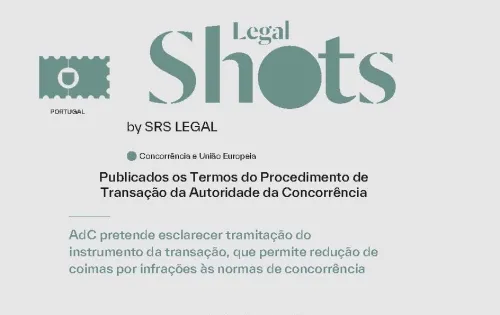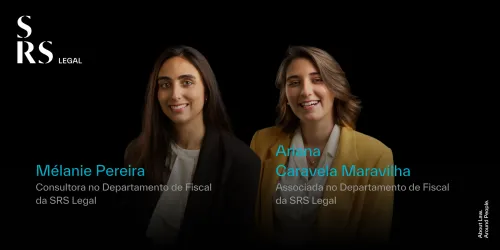Communication

Guidelines on the Settlement Procedure Published by the Portuguese Competition Authority

The Portuguese Competition Authority ("PCA") has recently published the Guidelines on the Settlement Procedure (“Guidelines”), in the context of administrative proceedings for infringements of the competition law (Law no. 19/2012, of 8 May, hereinafter " Portuguese Competition Act ") and Articles 101 and 102 of the Treaty on the Functioning of the European Union, as well as in the context of a sanctioning procedure relating to merger control (also provided for in the Portuguese Competition Act ).
With the publication of these guidelines, which did not exist until now, the PCA completed one of the final steps of the reviewing process of various regulatory acts and guidelines the PCA had been committed to under the latest amendment to the Competition Act (introduced by Law no. 17/2022 of 17 August).
The settlement procedure is a procedural instrument that contributes to faster decision-making, as it allows for the early closure of the case and implies the cooperation of the parties to the proceedings with the PCA throughout the investigation (either in the investigation phase or in the prosecution phase).
In addition to the referred cooperation, the settlement procedure requires the parties to acknowledge or refrain from contesting the participation and responsibility in the infringement. Furthermore, a settlement decision is unappealable. As a result of their cooperation, the parties to the proceedings are rewarded with a reduction in the fine to be imposed.
Although the Settlement procedure is diverse from the Leniency Programme, both can be combined in case of agreements or concerted practices between two or more competing companies (with a horizontal dimension).
Recourse to a settlement may be triggered through one of two methods: the PCA's initiative (only during the investigation phase) or an expression of interest from the parties concerned (at any time, until the final decision in the case).
The new Guidelines establish the procedures followed by the PCA when applying the settlement procedure, thereby simplifying and encouraging cooperation between the parties involved, as well as introducing greater predictability and legal certainty. According to the PCA, however, these guidelines do not constitute a normative act nor preclude the analysis of each individual case.
While the Portuguese Competition Act (articles 22 and 27) and the Guidelines on Infringement Proceedings devote some of their provisions to this procedural instrument and the PCA upholds a margin of discretion on a case-by-case basis, the Guidelines provide new and relevant insight on how the PCA henceforth intend to process and commit parties to a settlement agreement:
- When the settlement discussions take place before the statement of objections has been issued:
- the defendant will be able to contribute to the determination of the alleged facts and their legal qualification that will then be included in the PCA's settlement decision;
- the PCA, when informing the defendant of the alleged facts, will include the range of the potentially applicable fine and identify the applicable parameters guiding the percentage of reduction of the fine.
- Among the applicable parameters to be considered when reducing the fine is the relevance of the procedural efficiencies associated with the settlement, which are directly linked to the procedural stage at which it takes place (in principle, the earlier the settlement, the greater the procedural efficiencies);
- The PCA reserves the right to adopt a draft settlement that differs from the position set out in the statement of alleged facts or the statement of objections, provided that it reflects the terms agreed in the settlement discussions, while retaining its decision-making autonomy;
- Even if the settlement discussions between the defendant and the PCA have been successful, if the terms of the formal text by which the defendant confirms the draft settlement drawn by the PCA prove to be inadequate in view of the institute's objectives, the PCA may not accept this confirmation. This could be the case, for example, if a defendant / undertaking confirms the draft and, at the same time, the defendant / natural person linked to the abovementioned undertaking rejects it;
- It is possible to submit an alternative settlement proposal after the first proposal has been rejected by the PCA.
The settlement procedure also allows the PCA to issue a shorter decision, when comparing with the decision that would have been issued in the absence of the settlement, encompassing a simplified summary of the main facts and their legal qualification, and expressly mentioning that the defendant cooperated with the PCA.


